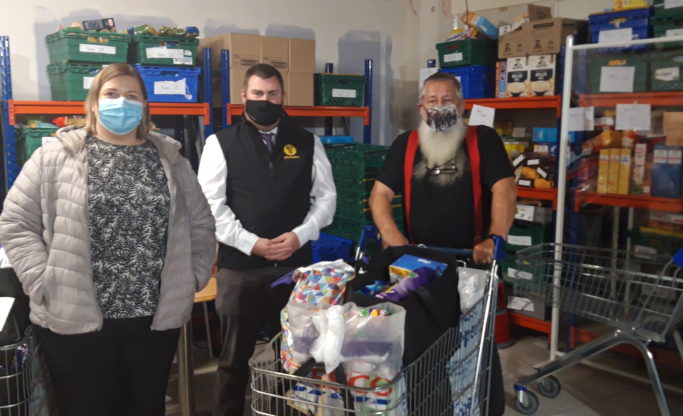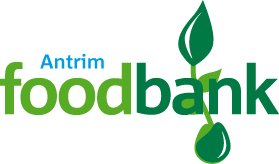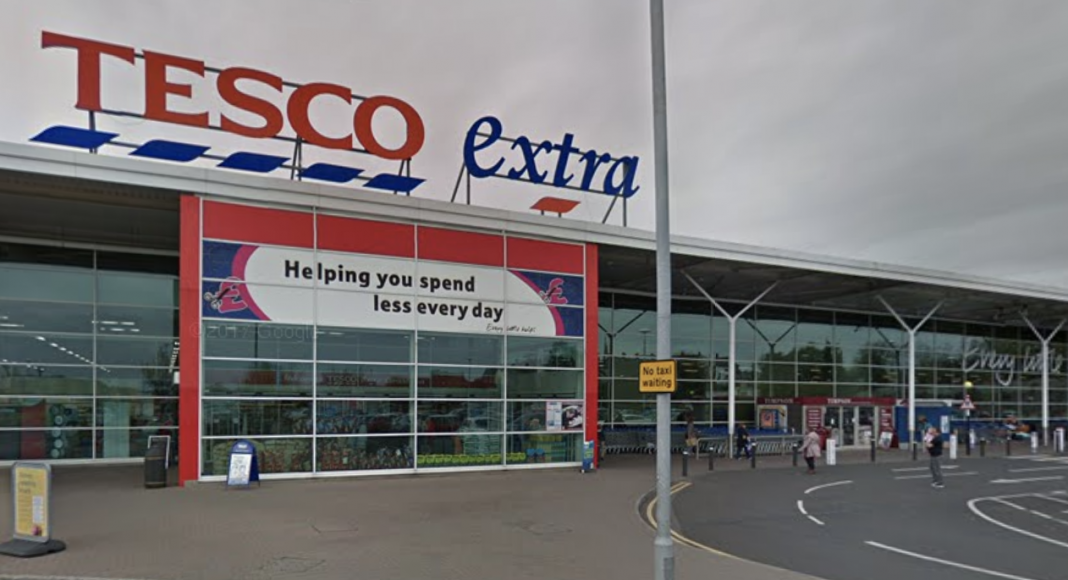
1.2m people fear they will be forced to skip meals if UK government cuts Universal Credit payments this October
Furthermore, 1.3m people fear being unable to heat their homes this winter if the cut goes ahead, according to new report by the Trussell Trust
The Trussell Trust recently published a new survey that lays bare the devastating impacts of a £20 a week cut from Universal Credit payments due across the UK next month.
This is the biggest overnight cut to social security since the Second World War and will be a huge blow for millions of families both in and out of work.
New research conducted by YouGov on behalf of the Trussell Trust* finds that a fifth of people currently claiming Universal Credit – representing 1.2 million people in the UK – say they are ‘very likely’ to need to skip meals when the cut hits. Furthermore, 21% of people surveyed –representing 1.3 million people – told researchers they would struggle to heat their homes this winter if their income is slashed in October.
Worryingly, 11% surveyed – representing 670,000 people – say it’s very likely they won’t be able to afford to switch on their oven to cook food after the cut and 900,000 people say they are very likely not to have enough money to travel to work or make essential trips such as medical appointments.
The Trussell Trust, which supports a network of 1,300 food bank centres across the UK including Antrim Foodbank, is part of a coalition of 100 organisations urgently calling on the UK government to stop the cut as part of the Keep the Lifeline campaign.
The cut comes amid growing need at food banks throughout the charity’s network in Northern Ireland. In the last year alone, there has been a 75% increase in the number of emergency food parcels distributed to people living in crisis in the area. This is on top of year-on-year increases in numbers of emergency food parcels provided to people in Northern Ireland.
The charity says this is not right and the vast majority of the public agrees. The research finds only one in five members of the UK public surveyed believes that social security provided enough support to people with physical and/or mental health conditions, which affect most people visiting food banks.
The Trussell Trust’s network lead in Northern Ireland, Jonny Currie, says it doesn’t have to be like this and is urging the public to write to local MPs calling on them to take action and keep the £20-a-week lifeline: trusselltrust.org/keepthelifeline
Jonny Currie, Northern Ireland network lead at the Trussell Trust, said:
Cutting this lifeline will be a devastating blow for thousands of households across Northern Ireland already struggling to make ends meet. These are families already caught in impossible situations who worry every day about switching on the heating and feeding their children. Families who are nearly at breaking point but just about managing to keep their heads above water.
This research reveals the shocking consequences of what lies ahead if this lifeline is cut in October. No one should have to suffer the indignity of not being able to afford the essentials in life – like food. That’s why we’re saying it would be wrong of the UK government to take away £20 a week from already precarious incomes and push even more people through the doors of food banks.
The answer must be to ensure our social security system provides people with enough money to cover the essentials. At the very least we’re saying this October, the UK government must choose to protect people and choose to keep the lifeline.
Fionnuala O’Donnell, Manager at Antrim Foodbank, said:
Last month, food bank usage in our Town was up 139% on the same time last year. Despite a very successful Summer Food Collection at Tesco Antrim, our stocks are now severely depleted. Factor in a 20% reduction in the income for the most vulnerable in our community, and I simply can’t imagine the level of demand we will be facing.
ENDS
Contact
Contact the Trussell Trust for more information on 020 3137 3699 or [email protected]
Antrim Foodbank Manager: Fionnuala O’Donnell on 028 9454 8555 or [email protected].
Notes to editors:
- The research is based on an online survey by YouGov of 2,008 adults (18+) currently claiming Universal Credit. People were surveyed between 5 – 19 August 2021.
- The figures have been weighted to be representative of people claiming Universal Credit. All weighting data provided by the Trussell Trust from Stat-Xplore.
- Estimates of the number of people are the Trussell Trust’s own analysis. They are calculated by taking the number of people aged 16+ claiming Universal Credit in Great Britain in July 2021 and in Northern Ireland in February 2021 and multiplying by the survey results. These figures do not include children.
- The total number of people aged 16+ in Great Britain claiming Universal Credit in July 2021 was 5,923,820. In Northern Ireland in February there were 135,710.
- The previous 30 days were counted from when the survey was conducted.
- Data on the UK-wide public is based on an online survey by YouGov of 3,022 adults (16+), undertaken 4-8 August 2021. Figures have been weighted to be representative of all UK adults.
Survey data
|
Thinking about your current financial situation and the impact of reducing your weekly income by £20 if the increase does end in October 2021…How likely or unlikely is it that you would have to do each of the following in the three months from October 2021 as a direct result of this?
|
||
| % who say ‘Very likely’ | Population estimates | |
| Needing to skip meals to keep up with other essential costs (e.g. utilities or rent). | 20% | 1,212,000 |
| Not being able to afford to heat your home this winter | 21% | 1,273,000 |
| Not being able to cook hot food because you couldn’t afford to use the oven or other utilities. | 11% | 667,000 |
| Not being able to travel to work or essential appointments (e.g. GP, school run or dentists) because you couldn’t afford to use public transport. | 15% | 909,000 |
| Need to use a food bank | 15% | 909,000 |
Other detailed information on question wording and results available from the Trussell Trust on request.
About the Trussell Trust:
- We’re here to end the need for food banks in UK.
- We support a UK-wide network of more than 1,300 food bank centres and together we provide emergency food and support to people locked in poverty, and campaign for change to end the need for food banks in the UK.
- Our most recent figures for the number of emergency food supplies provided by our network: https://www.trusselltrust.org/news-and-blog/latest-stats/
- The Trussell Trust’s food bank network brings together volunteers, staff and supporters of all faiths and none to make a difference. Local churches play a vital part in this work, with around 12,000 churches actively involved in donating food, and providing venues, volunteers and financial support for food banks.
For more on The Trussell Trust’s UK Foodbank Network visit trusselltrust.org
About Antrim Foodbank:
- Antrim Foodbank is part of The Trussell Trust’s UK Foodbank Network. Between 1 April 2020 and 31 March 2021, food banks in the Trussell Trust’s network distributed 2.5 million emergency food parcels to people in crisis, a 33% increase on the previous year. Almost a million of these went to children – that is almost two parcels every min. Trussell Trust foodbanks provide a minimum of three days’ emergency food to people in crisis. Over 90% of food given out by foodbanks is donated by the public.
- All those who receive emergency food are referred by frontline care professionals such as doctors, social workers and Community Advice advisers.
- Food parcels typically contain items such as tinned fruit and vegetables, tinned meat and fish, pasta, sauces, long-life juice, UHT milk, cereal, tea, rice pudding, biscuits and soup.
- Last year Antrim Foodbank collected 21 Tonnes of food from the public and provided emergency food to 2,832 people of which 1,223 were children.
- 1 in 5 people live below the poverty line in the UK.
We know the main reasons why people need emergency food are:
- Problems with the benefits system (delays, inadequacy and reductions)
- Challenging life experiences or ill-health
- Lack of informal support
- Poverty isn’t inevitable, and there is something we can all do to help build a future where no one needs a food bank.
- Other reasons for referrals include delayed wages, domestic violence, sickness, unemployment, debt, benefit changes, refused short-term benefit advance, homelessness and absence of free school meals during school holidays.
- The average weekly income of households at food banks is only £50 after paying rent.
For more on Antrim Foodbank visit antrim.foodbank.org.uk



